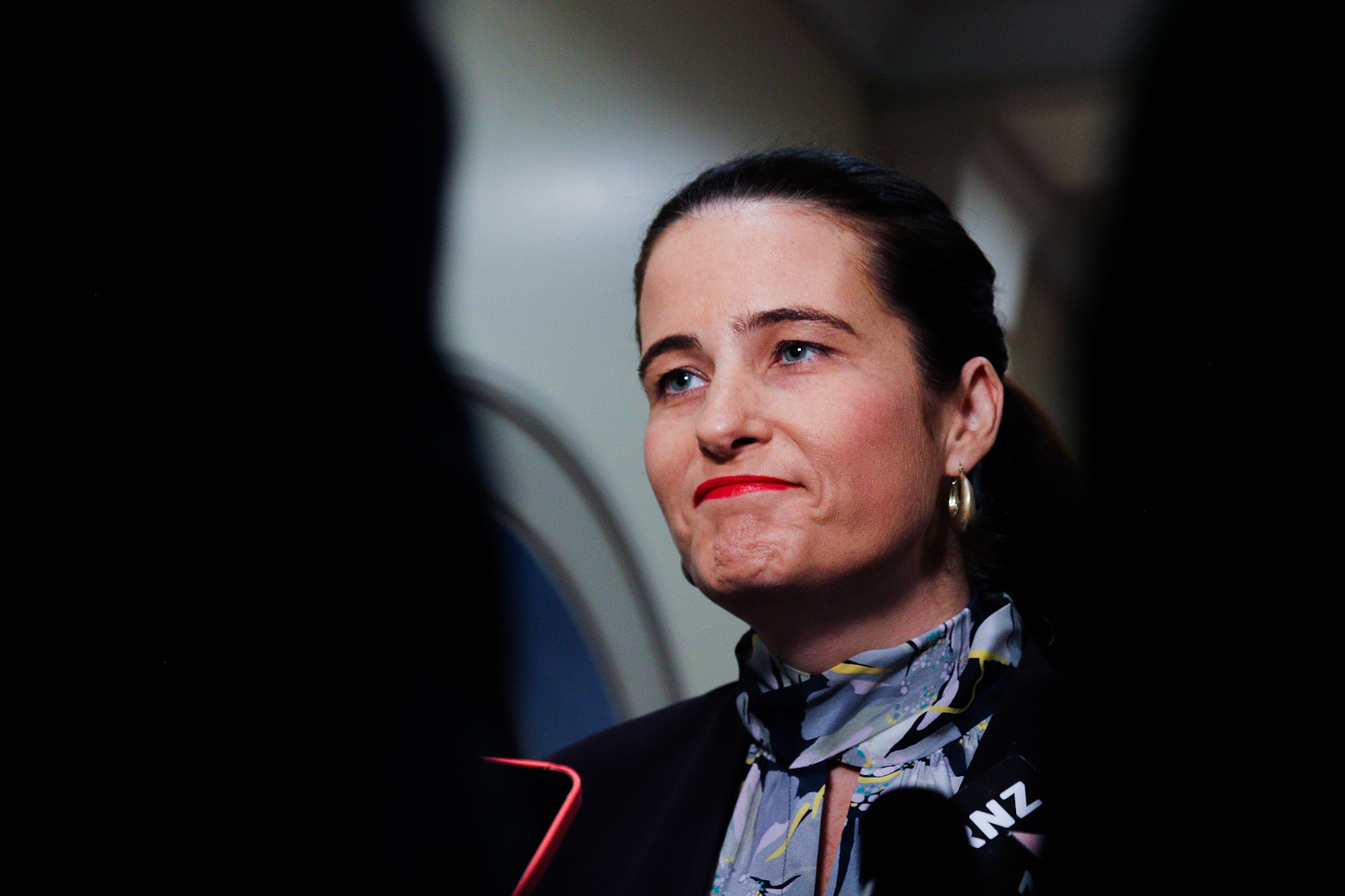
TL;DR: My top six things to note around housing, climate and poverty in Aotearoa’s political economy on Wednesday, August 7 are:
1. Willis ‘does the right thing’ (after a political backlash)
OIA trail shows nothing done on cancer drugs for Budget 2024
This is a brilliant tick tock analysis via NZ Herald-$$$ from Derek Cheng of the OIA trail on the National-ACT-NZ First Government’s strange failure to include its election cancer drug promise in Budget 2024. It turns out PM Christopher Luxon and Finance Minister Nicola Willis had decided it could wait until Budget 2025 and so nothing was done on it. Until the political backlash. Then it was done in a week because, Willis says now, ‘it was the right thing to do.’
Here’s the detail from Derek’s report last night (bolding mine):
No Cabinet paper on the policy was produced before Budget day, and most of the correspondence between ministers’ offices and Pharmac were to do with media inquiries about National’s election promise.
The Herald asked for all correspondence and official advice between Pharmac and the office of any minister regarding the pledge to fund the cancer drugs, as well as any such correspondence to and from Pharmac chief executive Sarah Fitt.
The results returned nothing in the first six weeks of the Government’s term. The first such document was on January 8 - an email with the subject line “Budget - Pharmacy - 13 Cancer Drugs” from Te Whatu Ora to Pharmac asking to set up a discussion in the next few days.
Email silence followed for two months until March 5, when two media inquiries landed after a podcast episode featuring oncologist Chris Jackson talking about the Government’s pledge. In response, Pharmac drew up a list of the status of the 13 cancer drugs - most of them were on the Options For Investment (OFI) list) – which was updated on May 241 at the request of Health Minister Shane Reti’s office.
Reti seemed much more attuned to the risk of a backlash, but seemed to hope, like Luxon and Willis that few would notice or care.
By then Reti’s office was already preparing for a possible backlash, having sought assurances from Pharmac for some lines for Prime Minister Christopher Luxon’s post-Cabinet press conference on May 20. Those lines included the Government being “fully focused” on improving cancer treatment – a standard line when there is nothing substantive to say.
This paucity of action is a stark contrast to the flurry of urgent activity after the backlash from failing to deliver on its promise, which included an open letter from 16 cancer organisations calling for “utmost urgency”.
Then all hell broke loose
A draft Cabinet paper was delivered by Thursday morning, two days after officials starting putting it together. Reti’s office asked for a separate paper the following day that included more detail on each of the treatments being purchased.
This led to a series of emails between Fitt and Johnson, with the latter commenting at one point: “I am struggling a wee bit with what more information we could provide apart from high-level generic info eg implementation phasing and timing to be worked through. We cannot provide a breakdown of cancer v non-cancer proposed expenditure due to commercial sensitivities ??….”
Two weeks later, Luxon, Reti and Seymour announced a $604m funding boost for Pharmac - brought forward from next year’s Budget - to allow the drug-buying agency to fund 26 cancer treatments and 28 other medicines.
‘It was the right thing to do,’ after the backlash
Cheng spoke to Willis yesterday about the delay. Here’s her quotes (bolding mine):
“We could have left it until May next year at the announcement of the next Budget, but we decided to bring it forward because we heard very clearly from cancer patients at the time of the Budget that they were disappointed by the timing.”
Willis had sent Reti a text the day after Budget day “because I wanted to see rapid action”.
“I knew that we needed to get an answer for New Zealanders as soon as possible. One of my reflections immediately after the Budget was [that] I want to make sure that we have a solution for that one quickly.
“We made a political decision to fund not only 26 cancer drugs but an additional 20 drugs because we decided that that was the right thing to do. And as a consequence, more than 175,000 New Zealanders will benefit.”
In my view, this is actually how Governments of both flavours operate and why campaigns, political coverage and asking the right questions in news conferences is so important. It also demonstrates both the short-termism and the poor political instincts of the PM.
Further to this, yesterday Te Whatu Ora-Health NZ backtracked on a policy on Keytruda after less than a week after it was made public. Just in case anyone thinks the Government is strategic and unresponsive to public awareness of actual policy, rather than just announced policy, then this is a good example. RNZ
2. Poll: Minors up & National/Labour down in poll
Coalition still ahead, but National at post-election low
Roy Morgan published its monthly political opinion poll results for July last night, showing National’s support down to its lowest level since the election, and both Labour and the Greens also down. However, ACT and NZ First both rose, as did Te Pāti Māori (TPM) and The Opportunities Party (TOP), which received its highest ever result in this polling series of 4.5%, up two percentage points. TPM rose two points to 6%.
All these nips and tucks meant the governing coalition of National, ACT and NZ First were on a combined 50% in July, up 0.5 of a percentage point from June, while the Opposition Labour, Green and TPM parties were on 44%, down 1.5 percentage points from a month ago. If replicated in an election, these percentages would see the Coalition govern in a 120 seat Parliament with 63 seats to the Opposition’s 57 seats.
I follow consumer confidence levels and the correlation with ‘right track, wrong track’ measures to get a sense of the overall happiness or unhappiness with the Government. Both bounced a bit in July, but remain below the highs seen in January and February.
The Government Confidence index is based at 100 where right track and wrong track measures are equalised. That means there was a net 10% of the population seeing the country on the wrong track in July, down seven points from June, but still well above pre-election levels and similar to levels seen just after Jacinda Ardern resigned as PM in January 2022 and was replaced by Chris Hipkins.
3. Solutions: Could KiwiSaver fill our social housing deficit?
The Ministry of Housing and Urban Development (HUD) yesterday asked via the Government procurement platform GETS for ideas from KiwiSaver managers, other fund managers and banks for ideas on how they could help fund the building of social houses. HUD said it had already received some suggestions and wanted a wider selection of views.
It suggests the coalition’s plan for Community Housing Providers (CHPs) to replace the extra supply now not being provided by Kāinga Ora is proving more difficult than Housing Minister Chris Bishop originally thought. HUD said: (bolding mine):
The Government announced that Budget 2024 will allocate $140 million in new funding for 1,500 new Social Housing places to be provided, but not necessarily owned, by CHPs. There is an opportunity to canvas what options are available to optimise Social Housing financing, to improve the value for money New Zealanders get for their investment.
Housing is capital-intensive, requiring large sums of money to construct an asset that lasts decades - ideally generations. Paying for the upfront cost with finance allows funding to more closely match the useful life of the asset/home. Currently the onus is on providers (CHPs) to source finance, both equity and debt. Feedback from CHPs is that getting this finance on good terms is difficult and a major barrier to their ability to grow the number of homes they can build and vulnerable people they can support.
The Government has received a number of proposals from the finance sector on how to improve Social Housing finance. Many of these proposals have merit. This RfI engagement seeks to gather more information from the market on the different issues and options.
The initial focus of this work will be on Social Housing funded through IRRS, our current funding mechanism, as there are a number of challenges and opportunities to make improvements. HUD via RFP through GETS
There isn’t much more detail, but the little out there shows that any thoughts of a flood of new social houses via CHPs that would replace the 3,000 homes a year previously supplied by Kāinga Ora is wishful thinking in the immediate future.
My understanding from talking to CHPs and banks is the banks won’t lend much to CHPs to develop and build because of uncertainty about ownership and the risks of Government subsidies being pulled. CHPs are also short of their own equity.
4. Quote of the day
Bolding mine
“After having carefully considered and weighed the witness testimony and evidence, the court reaches the following conclusion: Google is a monopolist, and it has acted as one to maintain its monopoly. It has violated Section 2 of the Sherman Act." Judge Amit Mehta in his decision US vs Google LLC
5. Chart du jour: Worthwhile viewing for KiwiSavers
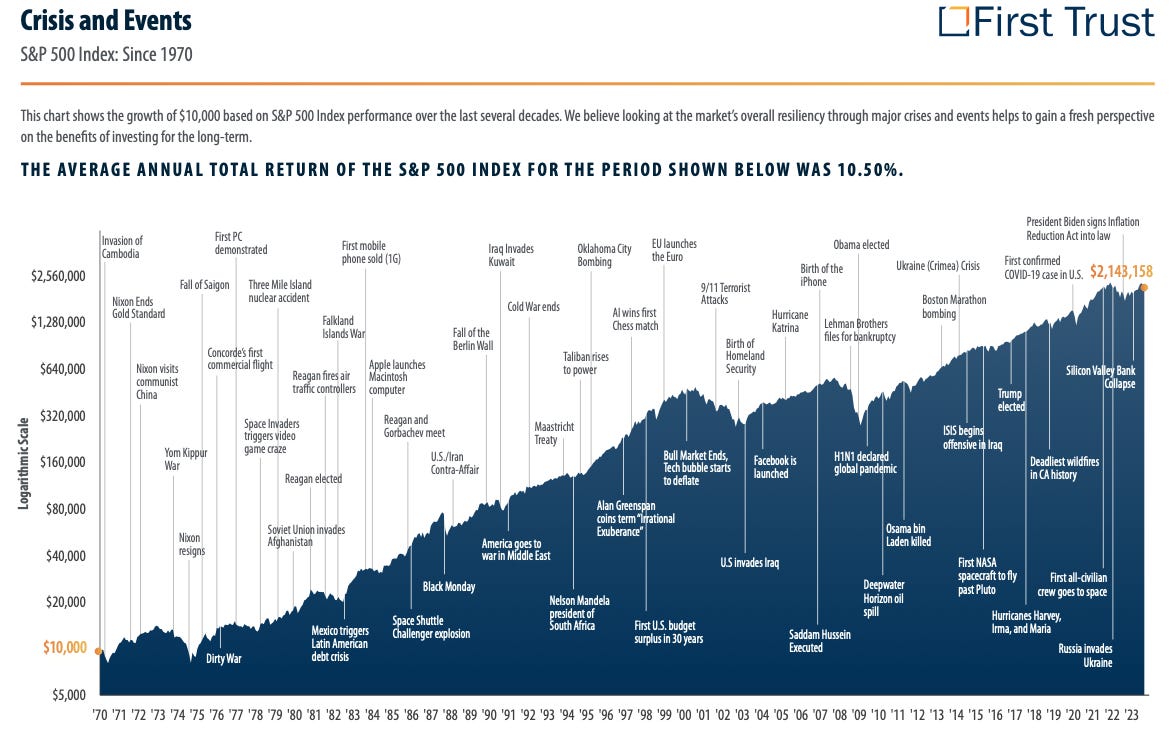
6. Climate graphic/chart/pic of the day
What scientists are doing (and not doing) about climate change
This is a useful new paper out on Monday on the Climate Change Engagement of Scientists, which surveyed 9,220 climate scientists across 115 countries, including 50-100 here, on what their climate change views and actions. Most are worried and reducing flying and driving, but most aren’t and won’t advocate or protest.
The best of the rest
Top six scoops and deep-dives elsewhere in the last day
Deep Dive: Mental health in Gisborne has the rug pulled out Amanda Gillies via Newsroom/RNZ’s The Detail
Analysis: Not enough nurses, too many or an 'artificial glut'? RNZ’s Gill Bonnett
Interview: Luxon tells Hosking schools can defer arts, music NZ Herald
News: The Digital Health Association fears a $381m funding cut The Post-$$$
Op-Ed by Maritime Union Secretary Carl Findlay: Ferry fiasco will echo for decades with private public partnership Newsroom
Deep Dive: ‘War on cones’ rhetoric unwinnable Newsroom’s Fox Meyer
Journal of Record for Wednesday, August 7
Economy: BNZ and Kiwibank called on the Reserve Bank to cut interest rates next week. News and reports: Interest, BNZ note
Climate: A mass bleaching of more than 50 million sponges in Fiordland was the largest event of its kind ever recorded and is estimated to have cut the population by close to half, a Vic Uni study found. Reports: RNZ
Work: St John’s ambulance workers voted to strike, with four-hour labour withdrawals due to take place on the 20th and 24th of August. News: RNZ
Environment: The EPA granted fast-track consent to open a new quarry in Hawkes Bay. The decision panel said tangata whenua had concerns, but it believed the impacts could be avoided or reversed during remediation.
Education: Te Pūkenga released its annual report showing $50 million in cost reductions, despite a shortfall in income attributed to falling domestic enrollments. International enrollments rose 86%. News: RNZ
Economy: The Maritime Union said the cost of cancelling the already-ordered InterIslander ferries could be up to $1 billion.
And finally, some fun things
Cartoon of the day
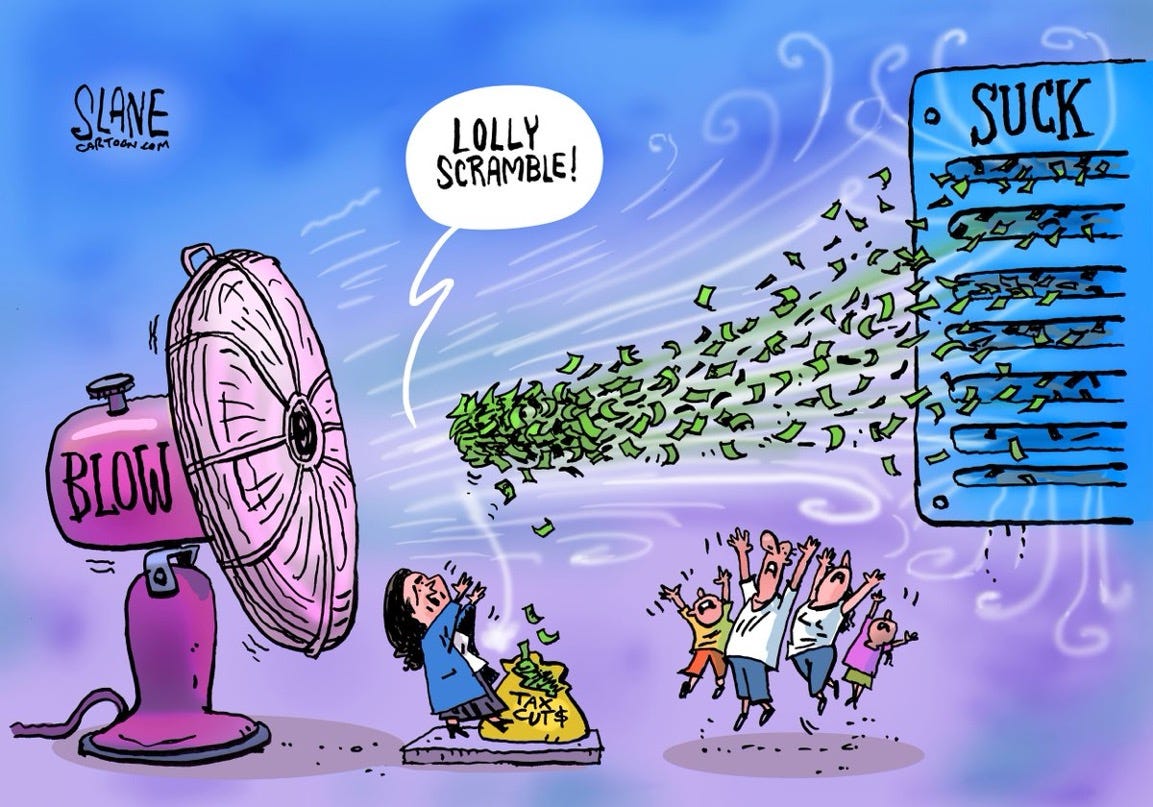
Timeline-cleansing nature pic
‘We do have heads. They’re just very, very small.’
Mā te wa
Bernard
Six days before the Budget.




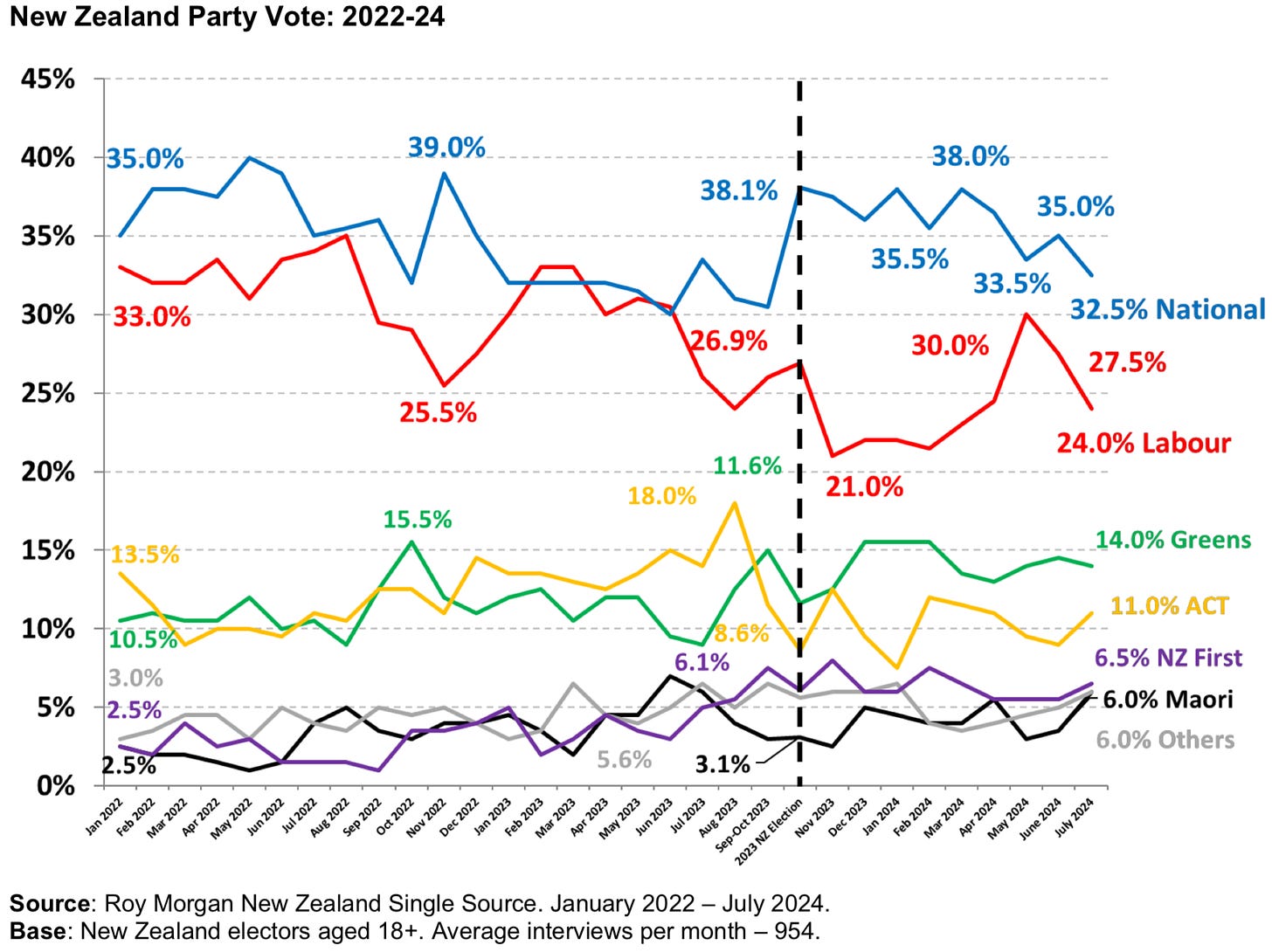
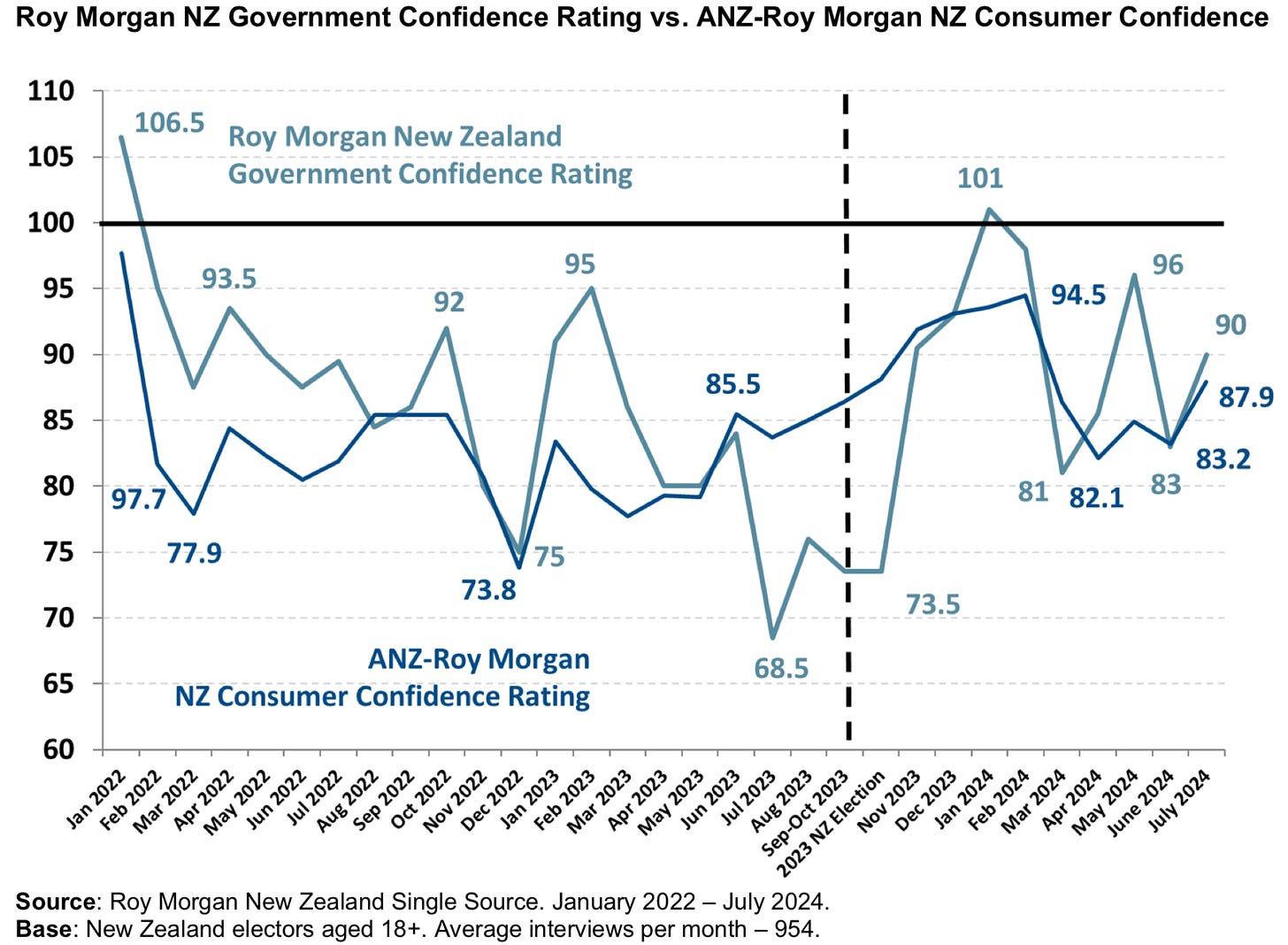
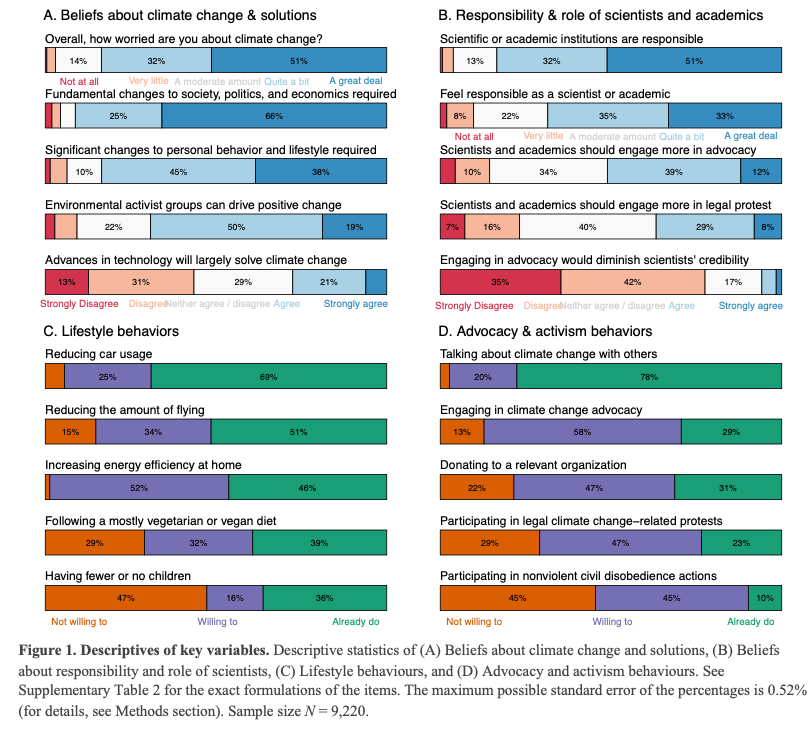
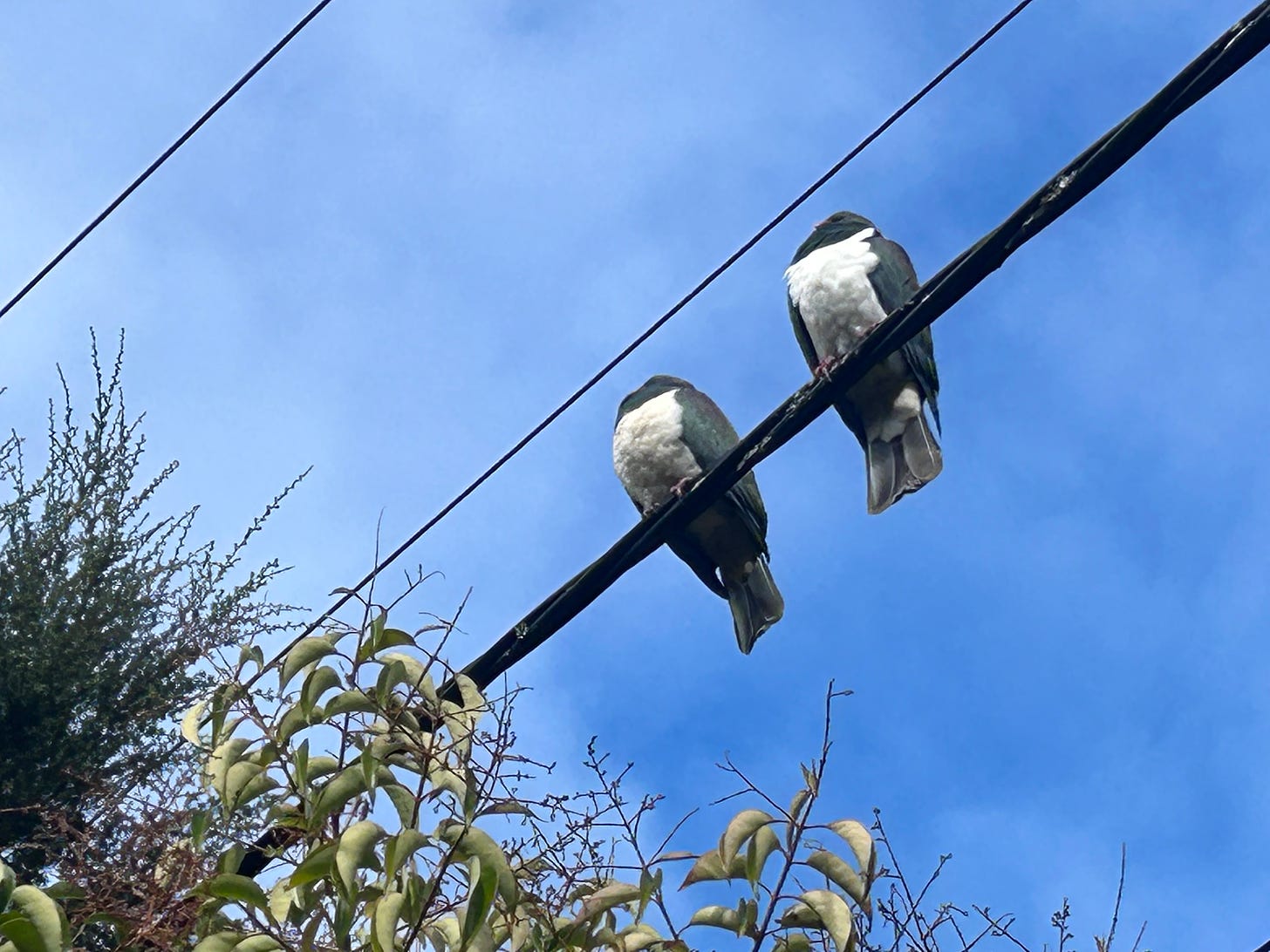









Share this post